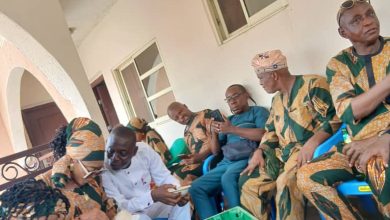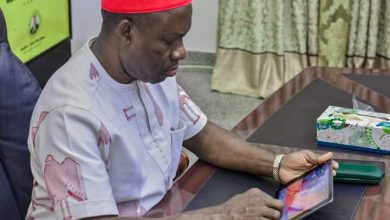
By Valentine Obienyem
When Mr Peter Obi became Governor, one of his earliest and most impactful actions was the payment of over ₦33 billion owed to pensioners, covering both gratuities and monthly pensions. Before him, only Governor Chris Ngige had left office without owing pensioners. At that time, ₦33 billion was not a trivial amount, it was sufficient to build a world-class conference centre and even an airport. Yet Obi chose not to chase only visible monuments, but to make human dignity and justice among his priorities. He understood that governance begins with fulfilling moral obligations, especially to those who had served the state faithfully.
This effort, quiet, unglamorous, and largely uncelebrated, was part of the invisible foundation-laying that Peter Obi undertook to place Anambra State on the right path. He did not trumpet his achievements, nor did he court media praise. Instead, he invested in systems, discipline, and fiscal responsibility, understanding that sustainable development rests not just on the structures we see, but on the human and institutional integrity we build. It is this same approach – measured, morally rooted, and forward-looking – that Nigeria desperately needs at the national level. His actions in Anambra were not just good governance; they were an ethical statement. And they now form part of the compelling argument for why he should be entrusted with the presidency of this country.
In sharp contrast, his successor, Governor Willie Obiano, left pension arrears unpaid for five consecutive years. Astonishingly, he was still hailed by many as the “Alert Governor,” merely for paying salaries on time. Yet this raises troubling questions: what became of the funds earmarked for pensioners? Were they diverted to projects crafted for optics and applause? Could it be that money meant to support elderly citizens was instead channelled into monuments of self-glorification? The irony deepens when one recalls that the same governor who built an airport later admitted he did so using part of the savings left by Mr Peter Obi, not funds meant for retirees. So, if the airport was not built with their gratuities, what exactly was done with the billions owed to those who had served the state faithfully?
One could sense an obsession with what they ignorantly called “signature projects”, which, incidentally, Obi also had in abundance: a teaching hospital built from scratch; the development of the state university campus at Igbariam; the twin, giant secretariat buildings; the two Onitsha business parks; the Nkpor flyover; the billions spent in revitalising education in the state; numerous structures in missionary hospitals that allowed two of them – Iyienu and Borromeo – to be approved today as teaching hospitals, among others. As our people say, “Nwoke nọ na Abada, nọrukwanu na Iyaji.”
I was pleased to hear the news that a four-year backlog of pension and gratuity arrears had been cleared recently. But why were the specific years not mentioned? By design or oversight, mischief-makers may now find an opportunity to falsely attribute those debts to Obi’s tenure.
On the matter of unpaid pensions and gratuities, did anyone raise the alarm? Where were the voices of accountability – legislators, labour unions, journalists, and civil society organisations? Why did the suffering of pensioners not spark public outrage?
More painfully, one cannot help but express disappointment that those who claim to love Obiano will, as usual, find no fault in him or even see the necessity of pointing out the truth – on the simplistic reasoning that he should be allowed to enjoy his retirement. But what of the elderly men and women who, under his watch, were denied the means to enjoy theirs? Are they less deserving of comfort, dignity, or public sympathy?
Indeed, the total sum he callously withheld from pensioners, men and women who had given the best years of their lives in service to the state, was more than sufficient to fund both the airport and the international conference centre. Ironically, these were the very projects he rushed to complete, eager to etch his name in concrete and glass while the very foundation of moral governance – caring for the aged and vulnerable was left in disgraceful disrepair. In a tragic inversion of priorities, he chose the fleeting glamour of grand edifices over the enduring obligation of justice. The optics of legacy were elevated above the substance of leadership, and history, if written honestly, will not be kind.
Furthermore, what kind of value system have we allowed to flourish, one in which leaders who neglect the vulnerable and pursue grandiose structures are rewarded with applause? Have we become so enamoured with superficial displays of development that we can no longer recognise the deep, patient work required to build a resilient and humane state?
More importantly, where were our moral institutions, namely: churches, traditional councils, and community elders when the elderly were reduced to beggars? Why was there such deafening silence in the face of this moral failure?
These are not rhetorical questions. They speak to the very soul of our polity. If we continue to ignore the principles of justice, fiscal prudence, and compassion that leaders like Peter Obi quietly championed, then we risk praising failure while punishing integrity.
Let us begin to ask the right questions. Let us remember that true leadership is not about noise or spectacle, but about laying firm foundations, even when invisible, for generations yet to come. It is for this reason, among others, that Mr Peter Obi deserves a national platform—because he has already demonstrated, with discipline and decency, what it means to govern not for applause, but for posterity.



